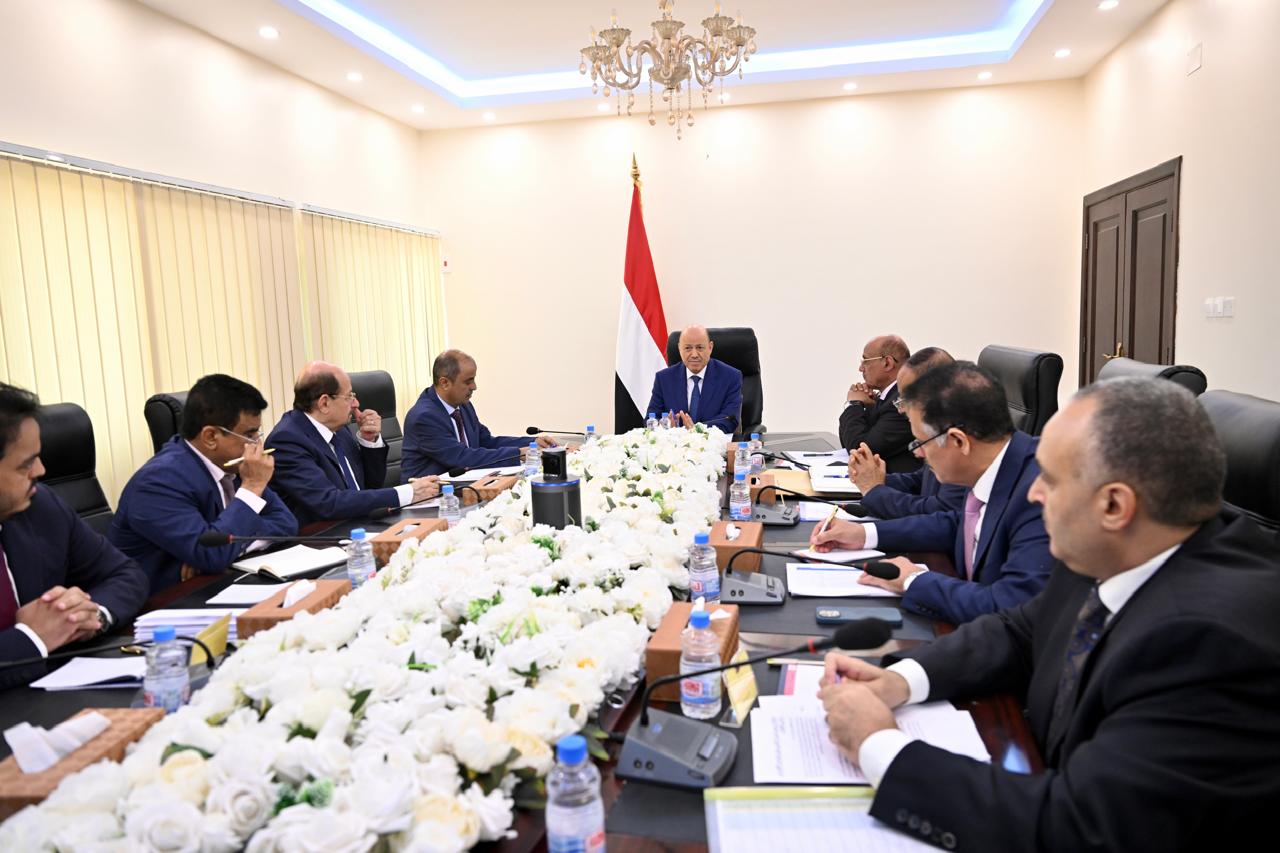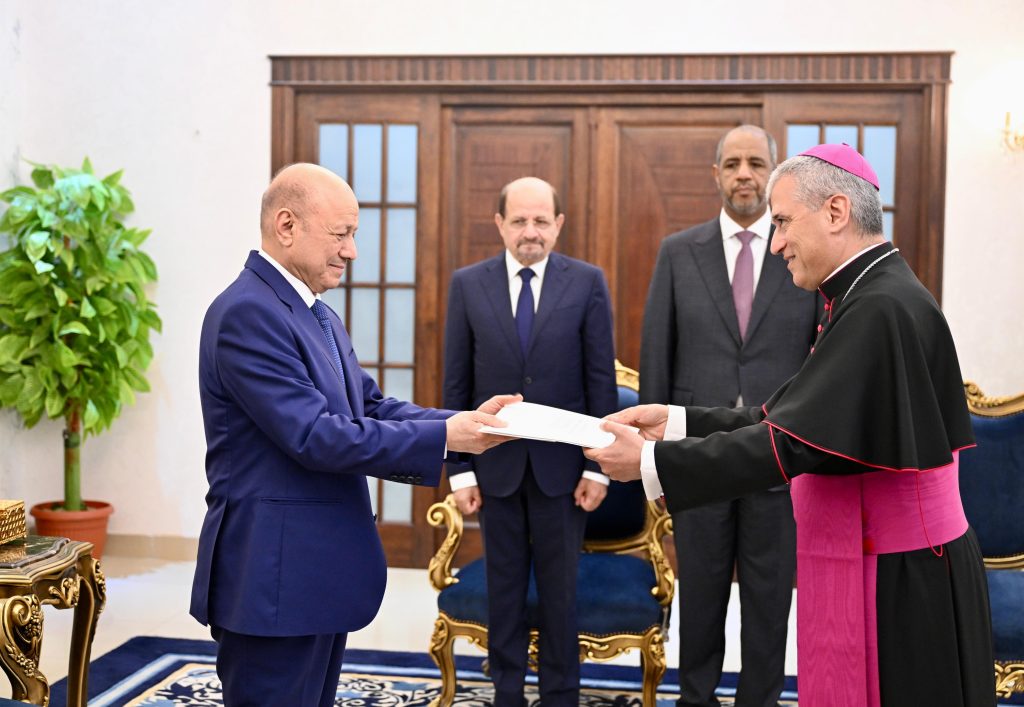President Alimi Leads Economic and Humanitarian Crisis Management Meeting
On Wednesday, President Dr. Rashad Mohammed Alimi, head of the Presidential Leadership Council, convened a crucial meeting at the Maasheeq Palace in Aden, the temporary capital of Yemen. The meeting focused on addressing the ongoing economic and humanitarian crises in the country.
Key Attendees
The meeting included several prominent figures, such as:
- Salem Saleh Bin Brek, Prime Minister and head of the crisis management committee.
- Ahmed Ghaleb Al-Mabqi, Governor of the Central Bank of Yemen.
- Dr. Shaaib Al-Zandani, Minister of Foreign Affairs and Expatriates.
- Dr. Abdul Salam Hamid, Minister of Transport.
- Dr. Saeed Al-Shamasi, Minister of Oil and Minerals.
- Hossam Al-Sharjabi, head of the economic team.
- Hani Wahab, Deputy Minister of Finance.
- Captain Nasser Mahmoud, Chairman of Yemen Airways.
Discussion Topics
The meeting addressed several pressing issues, including:
- Current political, economic, and humanitarian conditions.
- Regional developments amid the escalating Israeli-Iranian conflict and its implications for Yemen’s security and living conditions.
Prime Minister Bin Brek provided a brief overview of the current economic situation, highlighting financial indicators, currency fluctuations, and supply chain bottlenecks affecting essential goods and services, particularly electricity and domestic gas. The discussion also covered the government’s reform efforts and necessary actions to enhance state revenue and mitigate the humanitarian crisis exacerbated by Houthi militia attacks on oil facilities and shipping vessels.
Progress Reports and Government Commitments
The meeting reviewed progress reports from the Crisis Management Committee, assessing the implementation of decisions made by various state authorities. The committee proposed alternatives to strengthen the government’s ability to meet its obligations, including:
- Ensuring the continued payment of employee salaries.
- Facilitating the flow of essential goods and imports.
- Addressing urgent challenges and future forecasts.
Appreciation for International Support
The attendees expressed deep appreciation for the supportive stance of the Saudi-led Coalition, particularly the Kingdom of Saudi Arabia and the United Arab Emirates, in standing by the Yemeni people and their political leadership. The coalition’s ongoing responses to the challenges faced by the Yemeni government were acknowledged.
Regional Security Concerns
The meeting also included a briefing on the developments in the Israeli-Iranian conflict and its potential repercussions on regional and international peace and security, as well as the humanitarian and economic situation in Yemen.
Warning Against Houthi Actions
The attendees issued a stern warning to the Houthi militia, condemning their involvement in regional conflicts. They held the militia and its supporters fully responsible for any reckless actions that could further plunge Yemen into crises. Such actions could exacerbate military tensions in maritime routes, threaten food security, and worsen the humanitarian plight of the Yemeni people.
Conclusion
The meeting concluded with the presence of key officials, including Brigadier General Saleh Al-Maqaleh, Director of the President’s Office, and Mujib Othman, Advisor to the Prime Minister. The discussions underscored the urgent need for coordinated efforts to navigate Yemen through its current challenges.
To follow the news in Arabic



